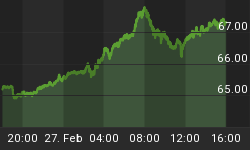As European companies get caught in the crossfire between Brussels and Washington over Iran, the EU’s attempt to punish companies who give in to Trump and abandon Tehran appears to be failing.
“If EU companies abide by U.S. secondary sanctions they will, in turn, be sanctioned by the EU," Nathalie Tuccid, an aide to E.U. foreign policy chief Federica Mogherini, told Britain’s BBC Radio 4 last week.
Among the companies in Europe who do the most business with Iran—and far more than American companies do—so far, the EU’s threats aren’t sinking in.
German car and truck maker Daimler, a major player in the automotive market, announced that a joint venture set up in Iran last year would cease its activities.
Likewise, Swiss Stadler Rail is freezing plans—agreed to in February--for an underground rail system in Tehran, according to Reuters.
Renault has agreed to comply with U.S. sanctions on Iran, and oil giant Total SA of France earlier abandoned its multi-billion-dollar South Pars gas project in Iran and has not released any statements suggesting it may rethink that yet.
While the others had until August 6 to wind down Iran operations for the first phase of sanctions, oil and gas companies have until November 6 to wind down.
Effective August 6, Washington has reimposed sanctions targeting the purchase or acquisition of U.S. banknotes by Iran's government, Iran's trade in gold and other precious metals, graphite, aluminum, steel, coal and software used in industrial processes, transactions related to the Iranian rial currency, activities relating to Iran's issuance of sovereign debt and Iran's automotive sector. Related: Stock Buybacks Poised To Eclipse $1 Trillion
A second batch of sanctions are expected to go into effect on 5 November, which target Iran's energy and shipping sectors as well as petroleum trading and transactions by foreign financial institutions with the Central Bank of Iran.
The EU’s chief of foreign affairs, Federica Mogherini, last week said the agreement signees were doing “their best” to keep the Iran nuclear deal “intact as much as possible”.
Much is at stake for Europe over this debacle. The bloc exported over $9.7 billion in goods to Iran in 2016 and imported nearly $6.5 billion worth of goods. But at the same time, the EU and U.S. did a massive $1.1 trillion in trade that same year.
Last Monday, the EU tried to fire back, threatening European companies with legal action and prohibiting them from complying with sanctions, but few think Europe will win this battle.
The EU sanctions are part of a new package of measures that went into effect last Tuesday and are ostensibly designed to protect EU companies from the effect of sanctions against Iran. The package of measures revives a 1990s-era ‘blocking statute’ that allows companies to ignore U.S. sanctions without fear of punishment in Europe. However, Brussels is now taking this a step further by moving to punish companies that actually comply with Washington.
A week later, the Trump administration is threatening the UK with “serious consequenecs” is they fail to comply with sanctions, and Europe seems to be standing down.
The language of punishing sanctions has been tone down. While EU companies who choose to comply with U.S. sanctions on Iran were obliged to apply for permission from the European Commission to do so, now Commission officials are saying those companies are “free to choose”.
Related: Google Accepts Chinese Censorship For Big Payout
On August 13, Commission’s spokesperson said companies “are free to choose whether to start working, continue working or cease business operations in Iran … on the basis of their assessment of the economic situation”.
The Commission also conceded that it hadn’t received any requests for permission to comply from any companies, despite the ranks that are pulling out of Iran.
The bottom line? European companies didn’t take the threat of punishing sanctions seriously, and the Commission has now backed down.
European leaders, including French president Emmanuel Macron, have hinted they don’t want a full-fledge trade war with the U.S. over Iran, and at the end of the day, U.S.-EU trade dwarfs EU-Iran trade, and dollars always win out.
By Linas Jegelevicius for Safehaven.com
More Top Reads From Safehaven.com
















